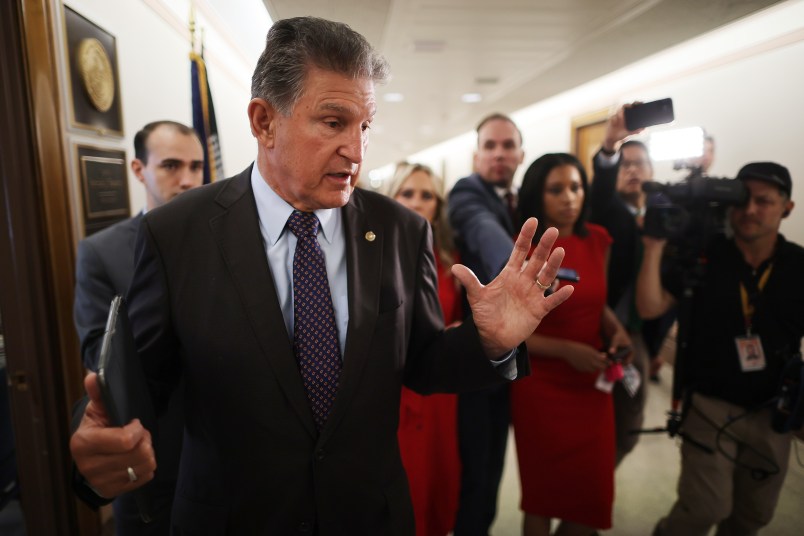A group of Republican senators unveiled their newest infrastructure counteroffer Thursday, a paltry proposal offering just just a tiny fraction of the new spending President Biden included in his plan.
While the White House applauded the group for its work, it seems clear-eyed about its shortcomings.
“We remain concerned that their plan still provides no substantial new funds for critical job-creating needs, such as fixing our veterans’ hospitals, building modern rail systems, repairing our transit systems, removing dangerous lead pipes, and powering America’s leadership in a job-creating clean energy economy, among other things,” said White House Press Secretary Jen Psaki in a statement.
“Lastly, we are concerned that the proposal on how to pay for the plan remains unclear: we are worried that major cuts in COVID relief funds could imperil pending aid to small businesses, restaurants and rural hospitals using this money to get back on their feet after the crush of the pandemic,” she added.
After Republicans held their press conference announcing the proposal, President Biden told reporters that he had called Sen. Shelley Moore-Capito (R-WV), leader of the Republican group, and told her that “we’re going to have to close this down soon.”
Capito relayed her own version of the call, telling reporters that Biden called to thank her for the proposal, but said he wants to “continue working.”
Senate Democrats would need to win the cooperation of the moderate faction of their party in order to pass the bill through reconciliation. That route will require all 50 Democrats to vote in lockstep — something that won’t happen while the likes of Sen. Joe Manchin (D-WV) insists that the search for the elusive bipartisan path forward continue.
Everything in moderation
The ever-crucial moderate Manchin responded enthusiastically to the proposal’s unveiling, but signaled that more work needed to be done.
“I think what they have done to present the proposal they put out today was very, very good,” Manchin said. “This is a wonderful step in the right direction.”
Administration officials had set Memorial Day as a deadline for “major progress” on bipartisan talks, though Manchin’s and Biden’s remarks suggest that the administration will blow past that.
The Democrats face a tight deadline of their own, however: the 2022 midterm elections, with it being extremely unclear if the party’s thin majorities in Congress will survive the next electoral cycle. That gives the party a brief window in which to pass their priorities.
“Negotiations need to continue,” Sen. Tom Carper (D-DE), said on Thursday. “The waiting is the hardest part.”
‘It’s not real’
The progressive wing of the party, meanwhile, has seen enough.
Sen. Elizabeth Warren (D-MA) took to MSNBC to denounce the counteroffer as not “serious.”
“They don’t have pay-fors for this, it’s not real,” she said.
Sen. Bernie Sanders (I-VT) has been twitchy for days, finger on the trigger of the reconciliation process.
Even Sen. Dick Durbin (D-IL), a close ally of Majority Leader Chuck Schumer (D-NY) and usually more to the center than Warren and Sanders, was dismissive of the counteroffer.
“It’s getting close to pulling-the-plug time,” he told a Bloomberg reporter.



